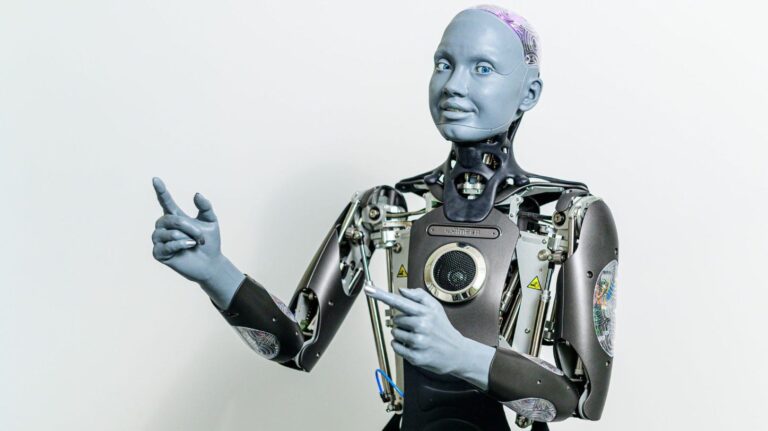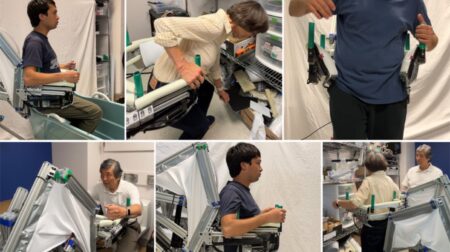A humanoid robot named Ameca, which has been described as the ‘most advanced of its kind in the world’, will be on display in Scotland at The National Robotarium.
The research hub for robotics and AI is based at Heriot-Watt University and operates in partnership with The University of Edinburgh. The centre has purchased the robot from Engineered Arts.
The humanoid was developed to engage with people in an organic way with changing facial expressions. Ameca is able to understand people through embedded microphones, cameras, facial recognition software and articulated motorised components.
The robot will be brought into schools and workshops across Scotland to offer people the chance to directly interact with the machine.
These interactions will support researchers to measure current public perceptions and understanding of humanoid robotics, with the aim of helping develop future technologies that are user-friendly and trustworthy.
Another of the major motivations for procuring Ameca is to demystify some of the more complicated technologies in development across the world and help people understand the benefits of AI and robotics.
The acquisition forms part of the National Robotarium’s broader mission to improve trust between humans and robots.
Steve Maclaren, chief operating officer at the National Robotarium, said: “The arrival of Ameca at the National Robotarium marks a significant step forward in our mission to make robotics more accessible and relatable to the people of Scotland, the UK and beyond.
“Since opening our doors in September 2022, we’ve successfully hosted more than 100 in-person and virtual events and engaged thousands of school-aged children.
“Ameca represents an exciting opportunity to build on that success and take public engagement to the next level. By giving people the chance to interact with this state-of-the-art humanoid robot first hand, we aim to demystify robotics, foster trust in human-robot interaction, and showcase the remarkable potential of these technologies to improve our daily lives and benefit society as a whole.”









